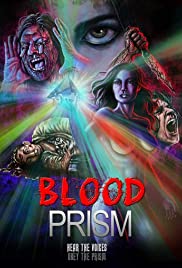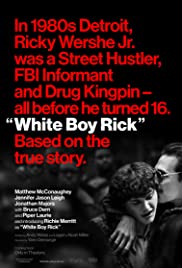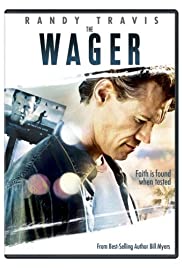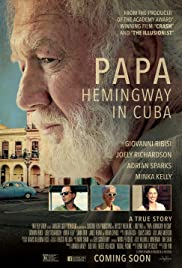
Shakespeare’s 17th century masterpiece about the “Melancholy Dane” was given one of its best screen treatments by Soviet director Grigori Kozintsev. Kozintsev’s Elsinore was a real castle in Estonia, utilized metaphorically as the “stone prison” of the mind wherein Hamlet must confine himself in order to avenge his father’s death. Hamlet himself is portrayed (by Innokenti Smoktunovsky) as the sole sensitive intellectual in a world made up of debauchers and revellers. Several of Kozintsev directorial choices seem deliberately calculated to inflame the purists: Hamlet’s delivers his “To be or not to be” soliloquy with his back to the camera, allowing the audience to fill in its own interpretations.
You May Also Like

A successful art gallery coordinator, living a double life as a serial killer, preys on the hopeless as she attempts to find meaning behind the voices she hears. When she believes she is falling in love with a depressed comic book artist; she struggles between what her heart is telling her to do about him… and what the voices are telling her to do about him.

When Molly, the 21 year-old sister of Maarten, departs the family home, she leaves her older brother with empty nest syndrome. But it also opens up new opportunities for him, such as the possibility to explore his love for Arthur, a closet gay. Molly and Maarten wrestle with their personal relationships and also their relationship with one another, but fate nevertheless seems determined to strike them both down.

A young man struggling for a good life meets a deaf girl from a well-off nearby family, he suddenly sees hope for love, and a better life but only if he can escape the predicament of the streets and the influence of his older sister.

George Sanders makes his final appearance as crook-turned-detective Simon Templar, a.k.a. “The Saint,” in The Saint in Palm Springs. The gimmick in this one is a set of rare stamps, smuggled from England. Wendy Barrie is the true heir to this treasure, and the Saint is engaged to protect her and the stamps. Our hero meets Barrie in a posh Palm Springs resort, where a gang of homicidal thieves have converged to relieve the girl of her inheritance. Three murders and one kidnapping attempt later, the villains are foiled by the Saint, with the aid of his onetime partner in crime Pearly Gates (Paul Guilfoyle). The Saint in Palm Springs is the sixth in RKO’s series of films based on the character created by Leslie Charteris.

Madame Ranevskaya is a spoiled aging aristocratic lady, who returns from a trip to Paris to face the loss of her magnificent Cherry Orchard estate after a default on the mortgage. In denial, she continues living in the past, deluding herself and her family, while the beautiful cherry trees are being axed down by the re-possessor Lopakhin (Teale), her former serf, who has his own agenda.

Indian Agent sent to try new approach to peace with Apaches based on respect for automomy rather than submission to Army. Wins over reservation chiefs and the Indian widow (Bancroft) given to him as housekeeper. Through use of diplomacy and demonstrations of faith in Apache leaders, reservation is put on the road to automomy. Conflicts arise between Apache widow and Eastern wife but latter has a lot to learn.

Oppressed by landowners, a peasant uprising ensues as an outlaw farmer refuses to pay taxes in this film adapted from Vilhelm Moberg’s novel.

While waiting for the brain surgery of his daughter Angela, victim of a motorcycle accident, the surgeon Timoteo recalls his torrid affair with and passion for Italia, a simple woman from slums in the periphery of the big city where he lives. The ghost of the beloved and sexual object of desire Italia chases him in his memories.

The story of teenager, Richard Wershe Jr., who became an undercover informant for the police during the 1980s and was ultimately arrested for drug-trafficking and sentenced to life in prison.

A financial schemer finds himself in the middle of an international scandal after he becomes a political adviser to the new prime minister of Israel.

An actor at the pinnacle of his Hollywood career finds himself buckling to temptation after he accepts the lead in a classic tale of good versus evil. Michael Steele has just been nominated for Best Actor at the Academy Awards. In the wake of that announcement, Michael is cast in what may be the role of a lifetime.
He’s set to play the lead in an incredible story of monumental conflict, but will all of the swirling gossip around Michael cause him to stumble on the path of righteousness? His marriage is in jeopardy and his career is on the line. This man who has always tried to do the right thing must find the courage and conviction needed to set his life straight.

In 1959, a young journalist ventures to Havana, Cuba to meet his idol, the legendary Ernest Hemingway who helped him find his literary voice, while the Cuban Revolution comes to a boil around them.